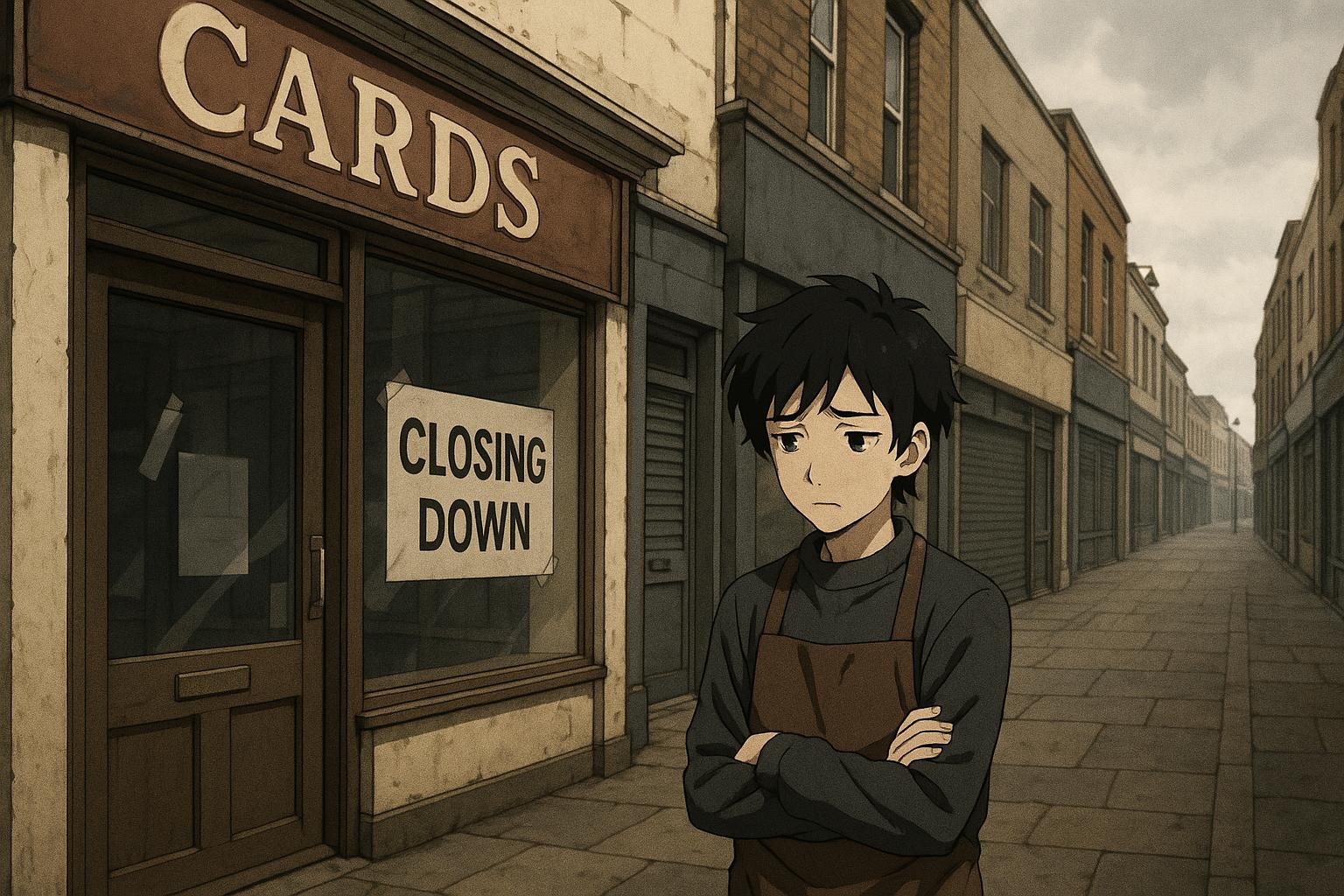The closure of Imperial Cards in Huddersfield marks not just a personal disappointment for its young owner, Stephen Mallalieu, but also serves as a poignant reminder of the challenges facing UK high streets. Despite optimism when he opened the shop in January at just 17 years old, the reality of running a retail business in these economic times proved daunting. Over the entire month of February, Stephen managed to generate only £300 in sales, an abysmal figure that highlights the dwindling footfall experienced by many brick-and-mortar retailers.
Stephen attributed his shop's struggles to high parking charges in the area, which he noted were detracting potential customers. “Since I started in January I have had no wage,” he lamented. On days known to be busy, such as Saturdays, his sales dwindled to as little as £1.20. This stark statistic underscores a broader trend impacting high streets across the UK, where parking fees have increasingly dissuaded consumers from venturing into town centres. A recent report indicated that rising parking costs have caused over two-thirds of motorists to avoid high streets, with many preferring out-of-town shopping centres that offer free parking, a significant lure in a climate of financial uncertainty.
The British Retail Consortium reported that retail footfall across the UK fell by 2.2% in 2024, representing the steepest decline since the pandemic. This drop, particularly acute during the final quarter of the year, correlates with a stagnating economy and the increased cost pressures retailers face. For many smaller shops like Imperial Cards, these factors create an untenable operating environment, encouraging closures that are becoming alarmingly frequent. In fact, data showed that 12,804 shops closed in 2024, averaging around 35 closures each day. This has left many high streets looking more like ghost towns, as local councils grapple with the challenge of reversing this trend.
The closures are not solely attributable to parking fees, however. Increased business costs stemming from government policies—such as rising National Living Wage and employer National Insurance contributions—have severely impacted the viability of many small retail outlets. Critics of recent budget measures argue that these financial burdens make it increasingly difficult for shops, especially those in high-rent locations, to survive. Gavin Peck, CEO of The Works, echoed these concerns, asserting that towns are attempting to offset falling revenues by hiking parking fees, ultimately resulting in a reduction in foot traffic to town centres.
The situation in Huddersfield mirrors similar tensions experienced in other urban centres. Councils like that of Gloucester have also faced criticism over rising car park charges, with fears that such measures could exacerbate the empty retail spaces plaguing local economies. While some local officials advocate for ongoing regeneration efforts, the stark reality remains: without meaningful intervention and support mechanisms for high streets, the decline may continue unabated.
As Stephen Mallalieu prepares to close his doors, his hopes have shifted toward finding employment in a theatre box office, a bittersweet transition following his attempts to uplift his local community through his small business. His experience serves as a microcosm of the challenges facing young entrepreneurs across the UK. "I feel disappointed and very sad," he shared, reflecting a sentiment that resonates across an increasingly uncertain retail landscape. The closure of Imperial Cards is not just a loss for its owner but a symptom of a larger decline that is forcing many to rethink their shopping habits.
Reference Map
- Paragraphs 1, 2, 3, 4, 5, 6, 7
Source: Noah Wire Services
